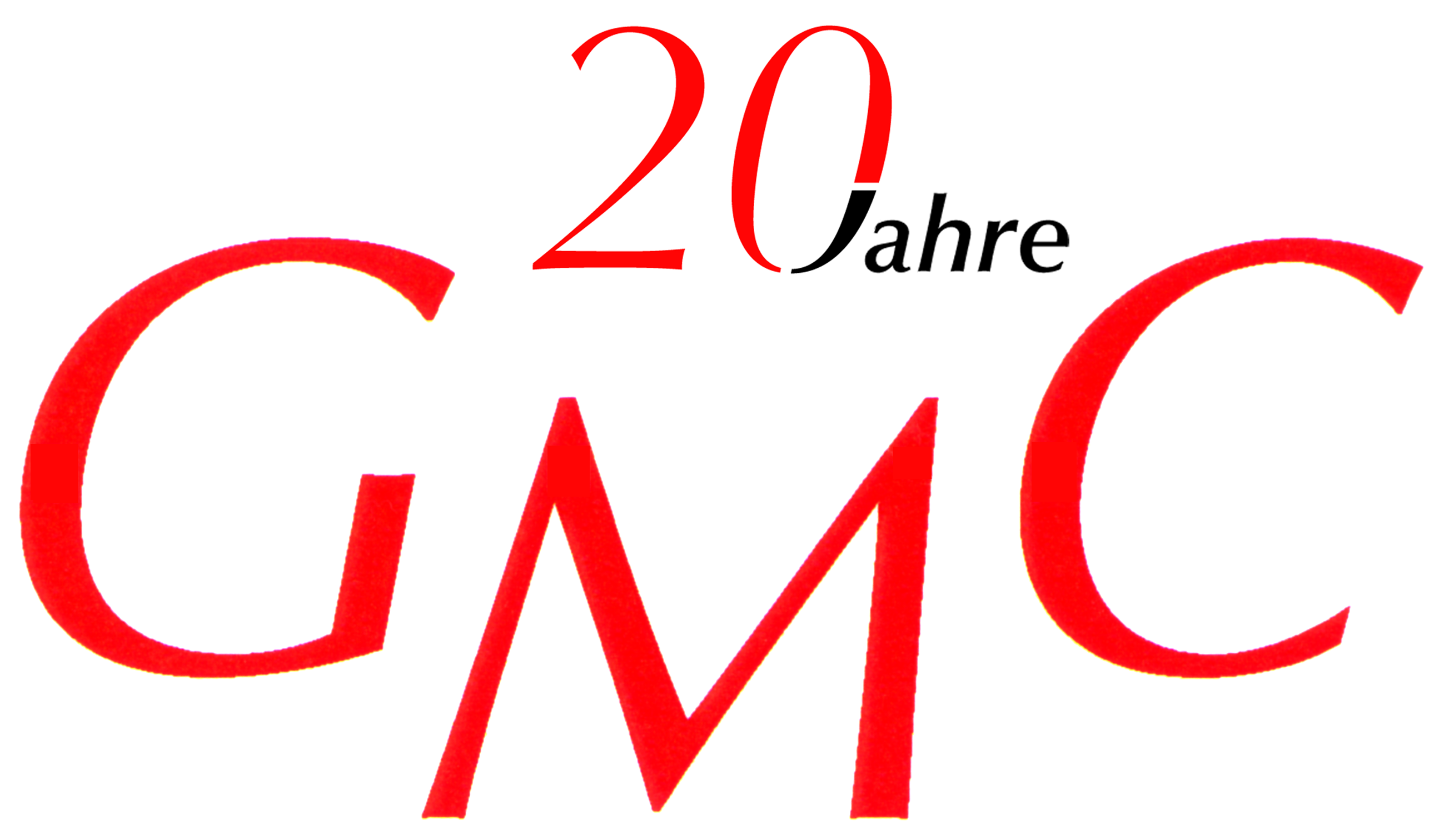
FOREWORD
The author, Gerd Michael Müller, born in Zürich in 1962, traveled as a photo-journalist to more than 50 nations and lived in seven countries, including in the underground in South Africa during apartheid. In the 80 years he was a political activist at the youth riots in Zürich. Then he was involved in pioneering Wildlife & eco projects in Southern Africa and humanitarian projects elsewhere in the world. As early as 1993, Müller reported on the global climate change and in 1999 he founded the «Tourism & Environment Forum Switzerland». Through his humanitarian missions he got to know Nelson Mandela, the Dalai Lama and other figures of light. His book is an exciting mixture of political thriller, crazy social stories and travel reports – the highlights of his adventurous, wild nomadic life for reportage photography .
(please note that translation corrections are still in progress and images will follow soon)
In March 2013, at the annual tourism trade fair „ITB“ in Berlin, in the hall where India and Indian tour operators presented themselves, I was approached about a press trip to Gujarat and gave my business card to the initiators. Just two months later, I flew via Dehli to Ahmedabad, the capital of the state of Gujarat, and there, to my amazement, I met about 150 journalists and influencers who had flown in from all over the world to get to know the tourist attractions of Gujarat. After splitting into different interest groups, we were carted around for five days and introduced to the tourist highlights. First was the Rani ki Vav stepwell near the town of Patan on the banks of the Saraswati River. A Unesco World Heritage Site, the temple complex was dedicated in the 11th century in honor of the king’s daughter of Khengara of Saurashtra of the Solanki Dynasty. The temple complex was a huge eight-story water reservoir and contains over five hundred frescoes from the mythology of the time and still valid today. Another highlight was the Hindu Sun Temple in Modhera, this temple complex is also located on the banks of a river, the Pushpavati River. The sacred site was built between 1026 and 1027 BC during the era of King Bhima I of the Chaulukya Dynasty. The temple complex consists of three complexes: The Shrine Gudhamandapa, the Association Hall Sabhamandapa and the Water Reservoir Kunda. Then the journey continued in the jeep and took us into an inhospitable, dust-dry land to the Rann of Kutch, a saltwater marshland on the border between India and Pakistan. The Rann of Kutch is divided into two regions: The Great Rann Kutch and the Little Rann Kutch. The Great lies in Pakistan, while the Lesser Rann of Kutch borders its big brother to the southeast and extends to the Gulf of Kutch. 20,946 km2 of the Little Kutch are protected area with a Wildlife Sanctuary, which was established already in 1973. At the end of the trip we spent one more night in the Maharaja Palace in Poshina and before it went back to the capital of Gujarat Ahmedabad, where I visited the Ghandi Museum and then it came to the final meeting of the journalist event with the appearance of Narenda Moodi, of which until the hour none of the media representatives knew. It was only when some heavily armed soldiers with mine detectors and search dogs showed up that it was clear that there was about to be a high ranking visitor. Then a small escort drove up and Narenda Moodi ascended in the presence of the tourism minister of Gujarat and some other officials and made clear to all his ambitions for the Indian presidency, a goal that he then also achieved and has since divided India with his Hindu nationalist course.
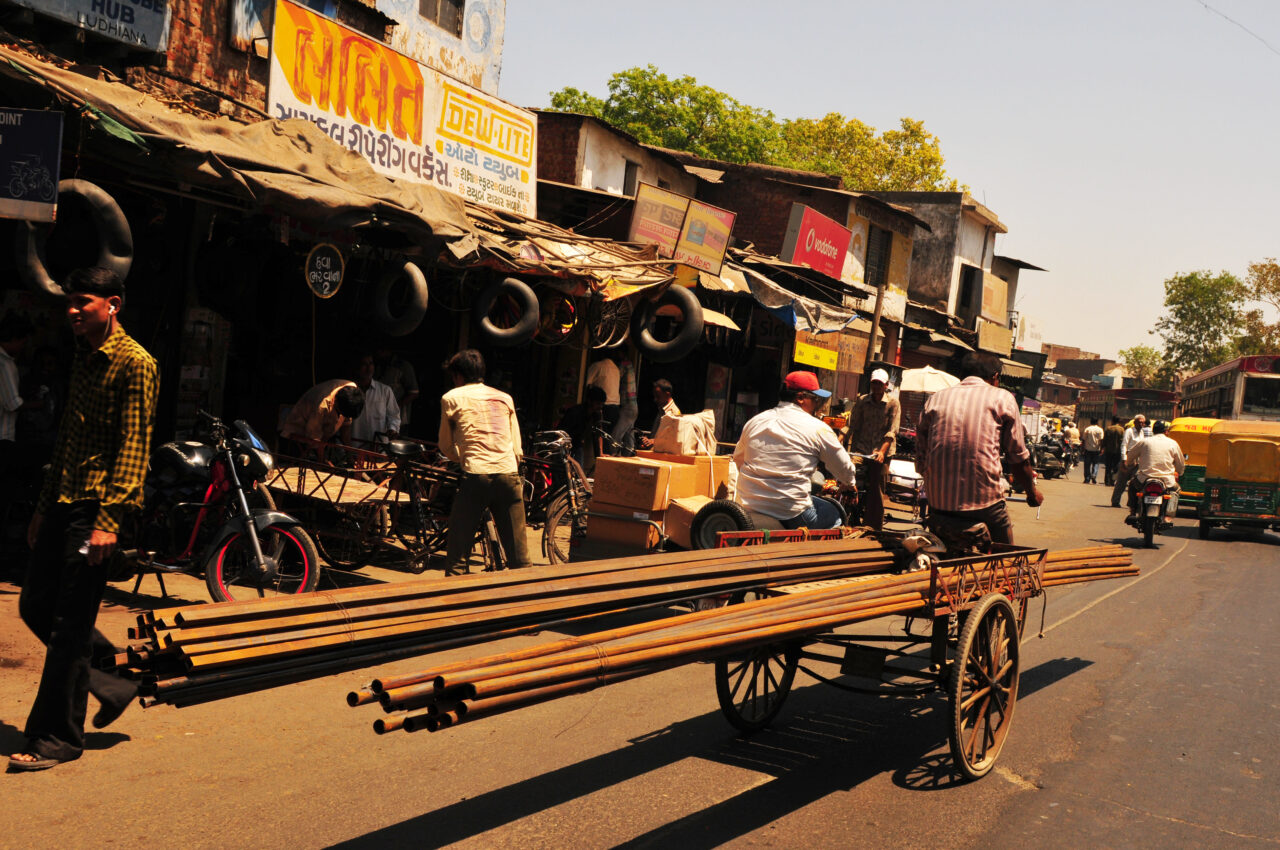
Eisenstangen, die auf einem Dreirad druch die Strassen von Ahmedabad gefahren werden | Iron carried around on a bicicle through the streets of Ahmedabad 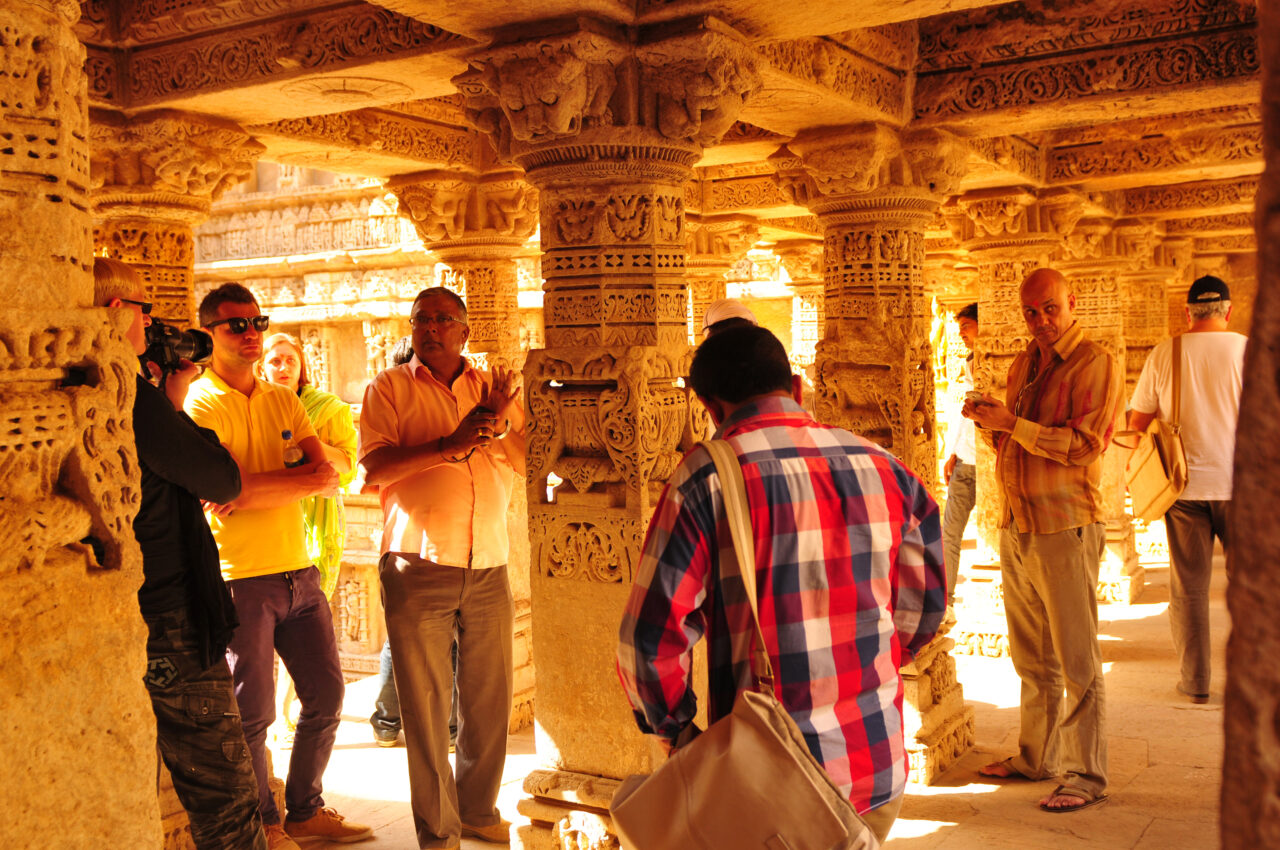
Sandstone tempel and Waterstorage Step Well of Rani ki Vav in Patan, Gujarat, India 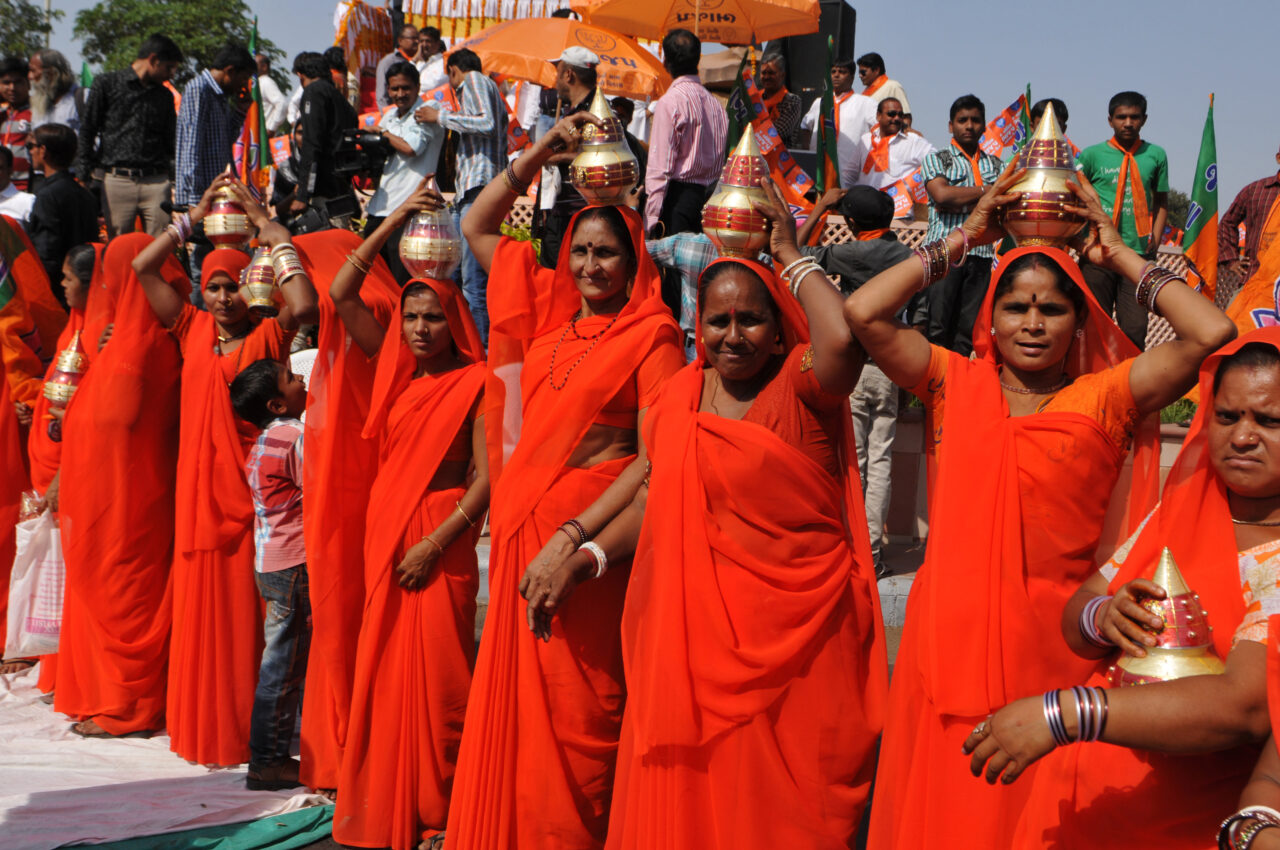
Gujarat: Political celebration of the communist party and honouring freedom fighter Sardar Vallabhbhai Patel at Ahmedabad Airport 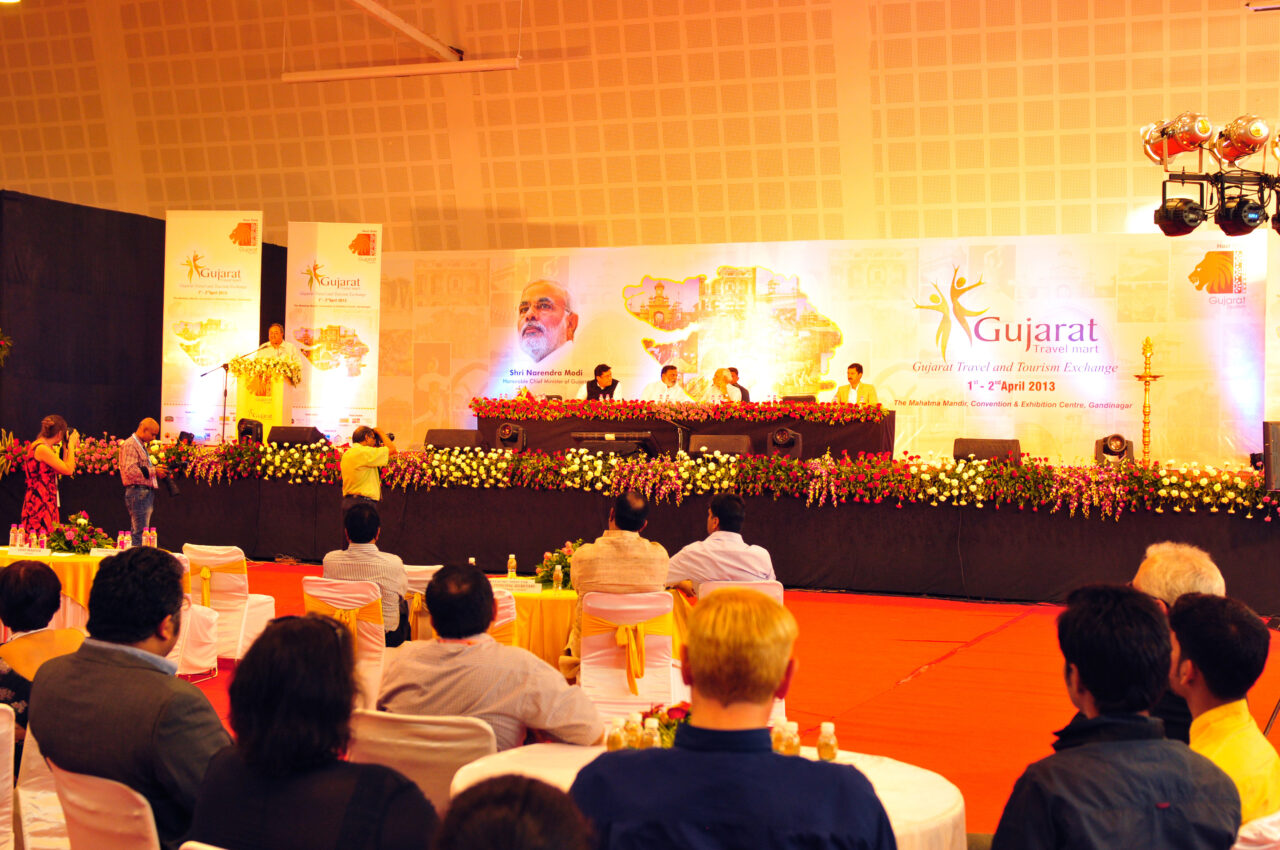
Media representatives at Gujarats ministers press conference at Gujarat Travel Mart in Ahmedabad 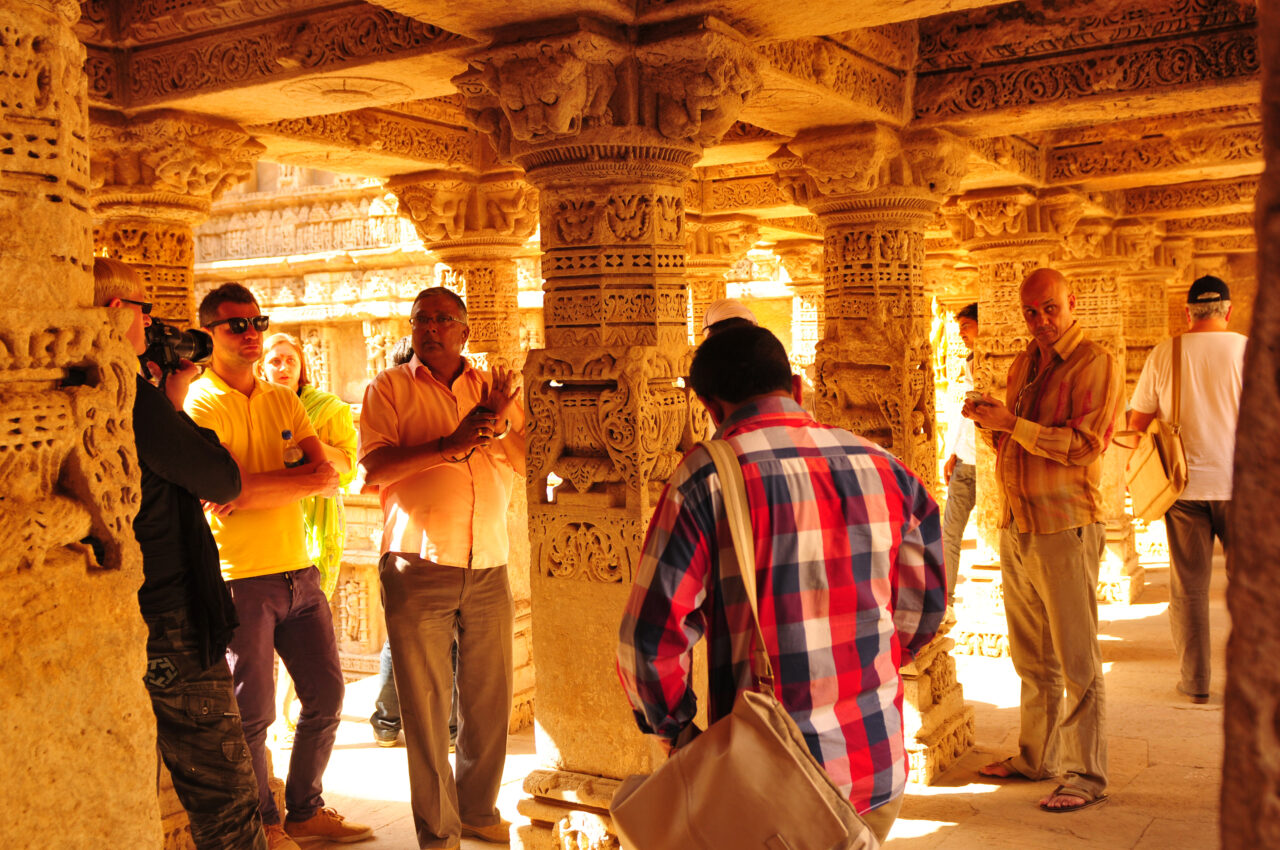
Sandstone tempel and Waterstorage Step Well of Rani ki Vav in Patan, Gujarat, India 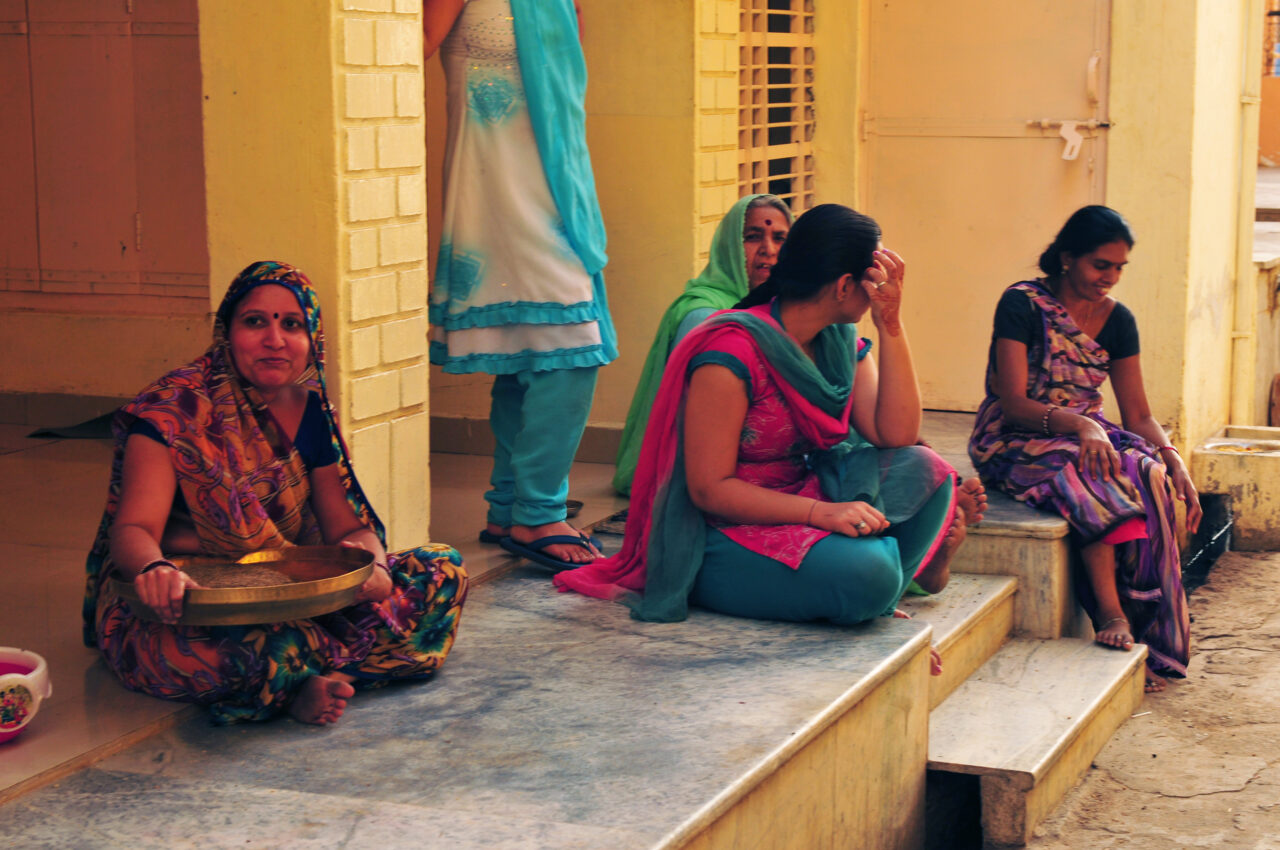
Frauengruppe in Poshina, Gujarat | Women group in Poshina, Gujarat 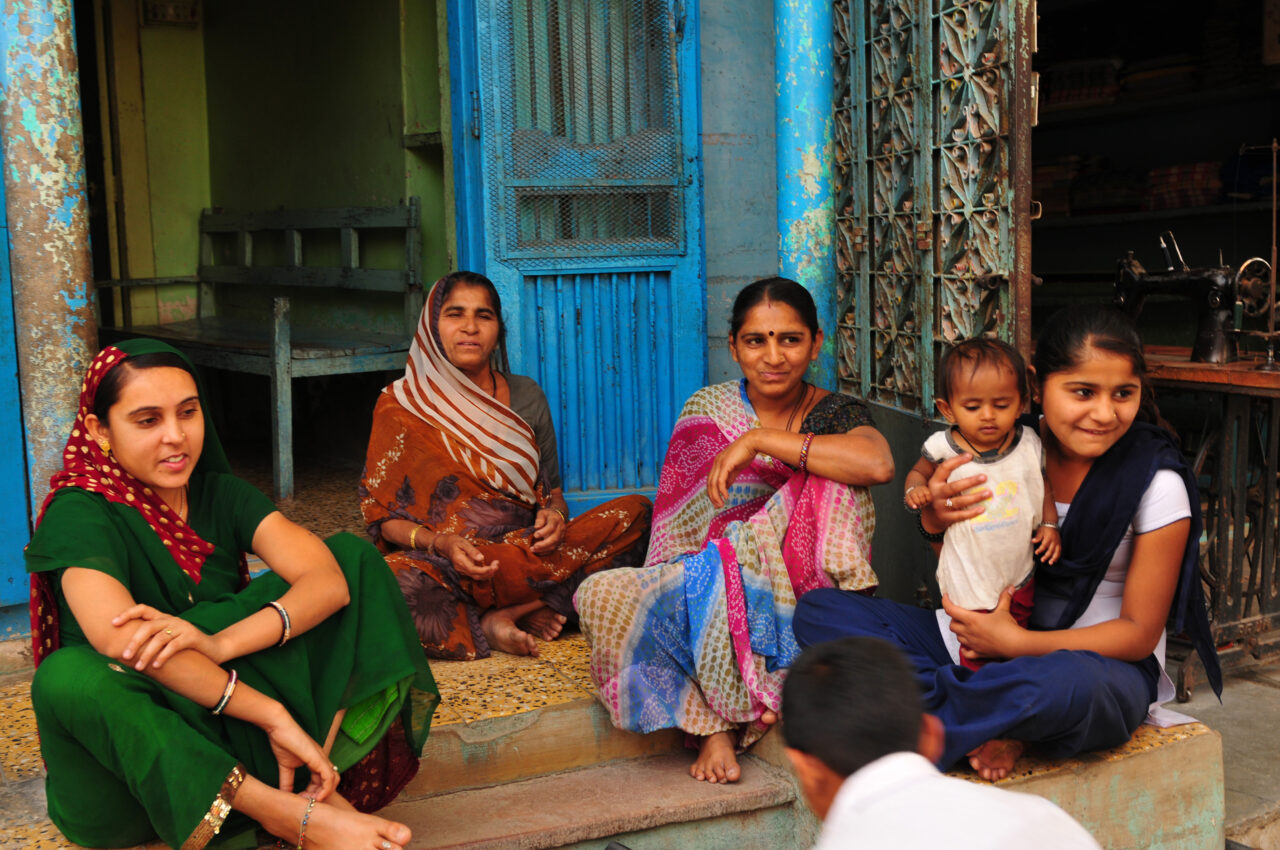
Junge und ältere indische Frauen vor Haus sitzend; Poshina; Gujarat; Indien | Young and older Indian women sitting in front of the house; Poshina; Gujarat; India 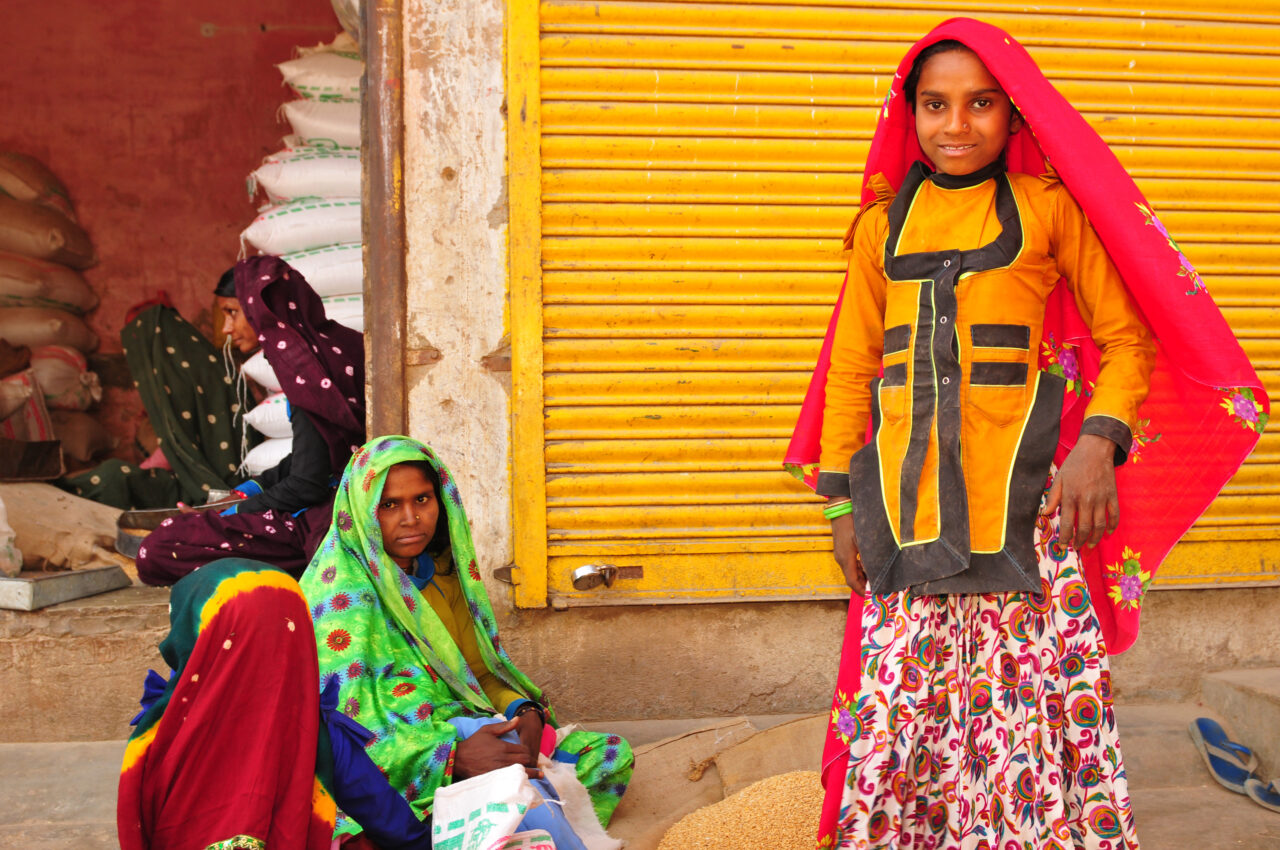
Vijaynagar: Die Gujaratis sind die am farbigsten gekleideten indischen Frauen. Hier werden die schönsten Stoffe und Kleider produziert | Colourfull dressed Gujarati women. Gujarat is a paradies for textile lovers and fashion freaks 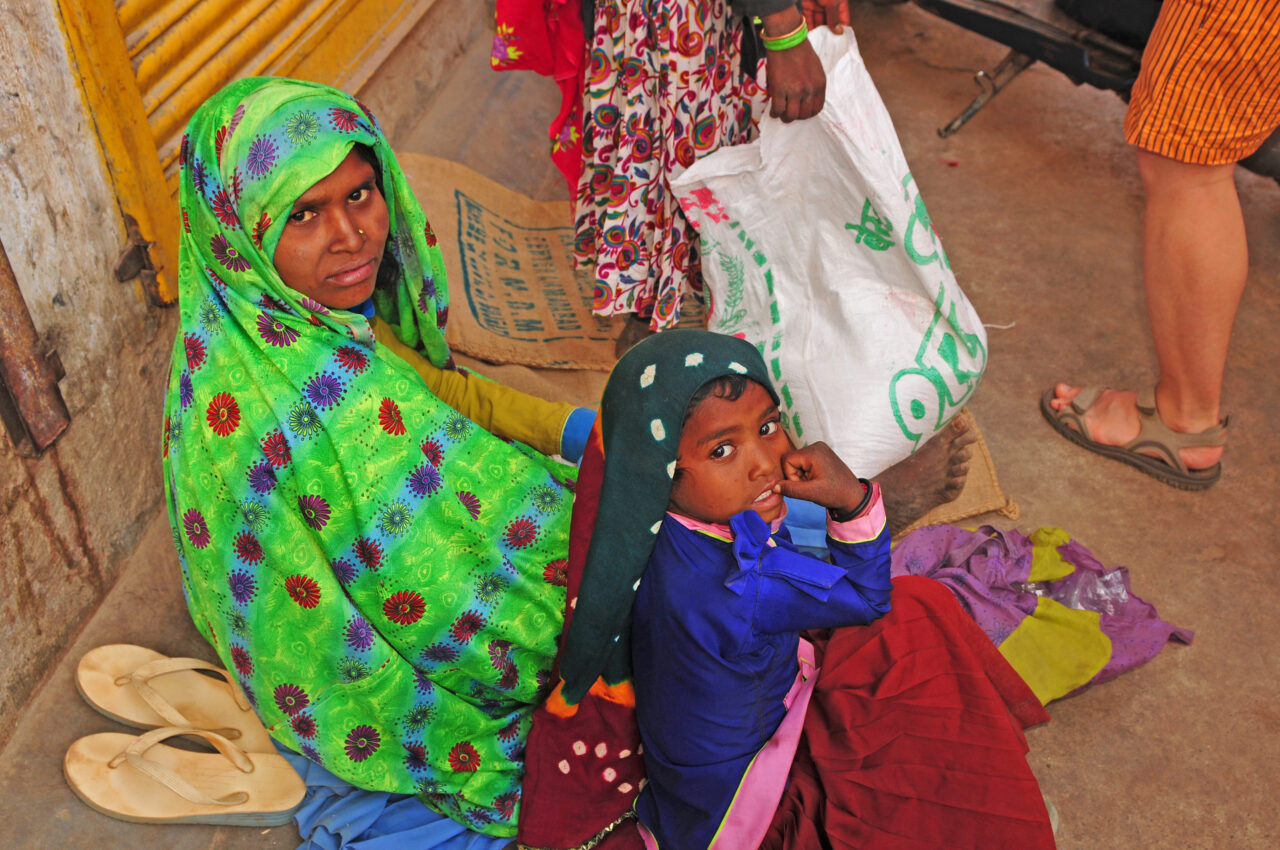
Vijaynagar: Die Gujaratis sind die am farbigsten gekleideten indischen Frauen. Hier werden die schönsten Stoffe und Kleider produziert | Colourfull dressed Gujarati women. Gujarat is a paradies for textile lovers and fashion freaks 
Press conference with Premier-Minister Nahredra Modi and Gujarats Tourism-, Transportministers at the Gujarat Travel Mart in Ahmedabad-City 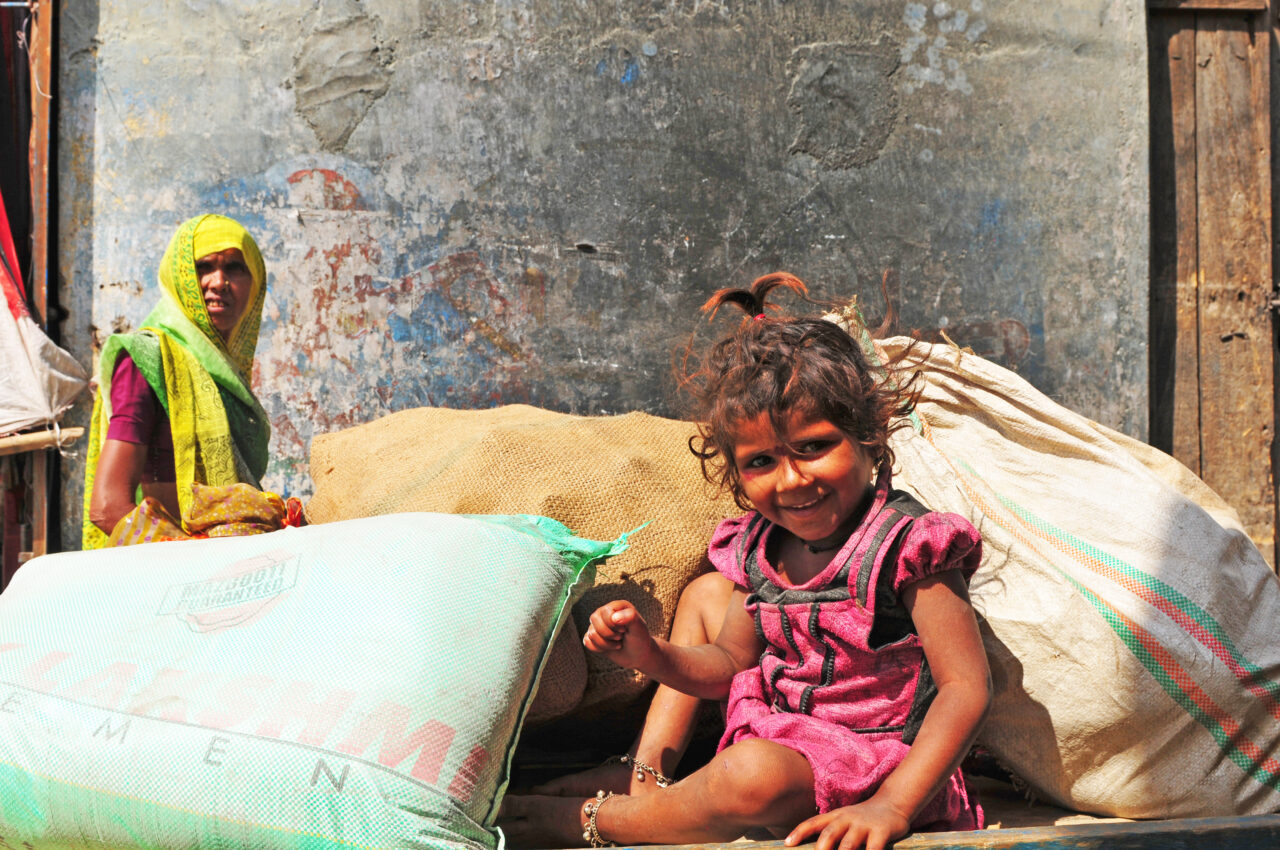
Gujarat: young Indian girl sitting on a chariot between goods in Poshina city 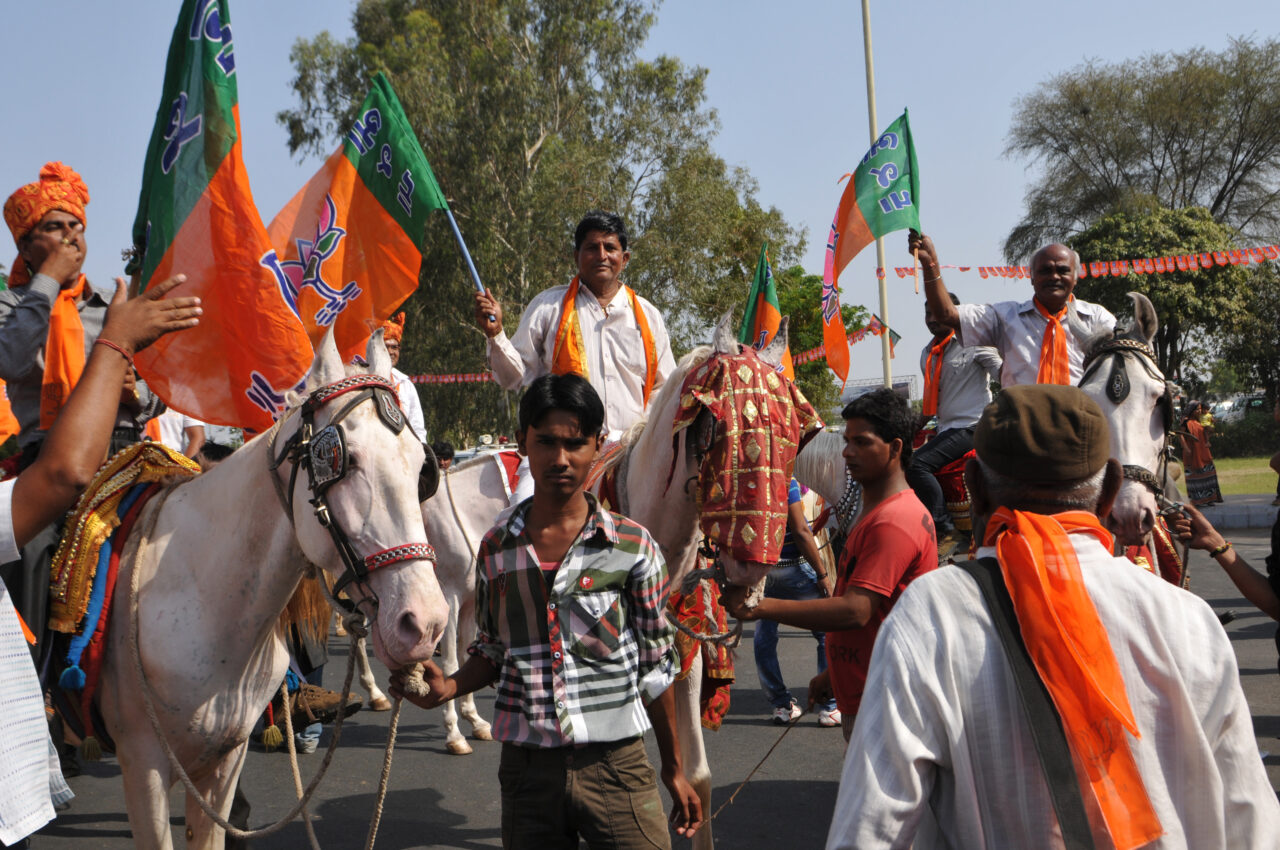
Politische Feier der Kommunistischen Partei und Ehrung von Sardar Vallabhbhai Patel in Ahmedabad | political celebration oft he communist party and honouring freedom fighter Sardar Vallabhbhai Patel at Ahmedabad Airport in Gujarat 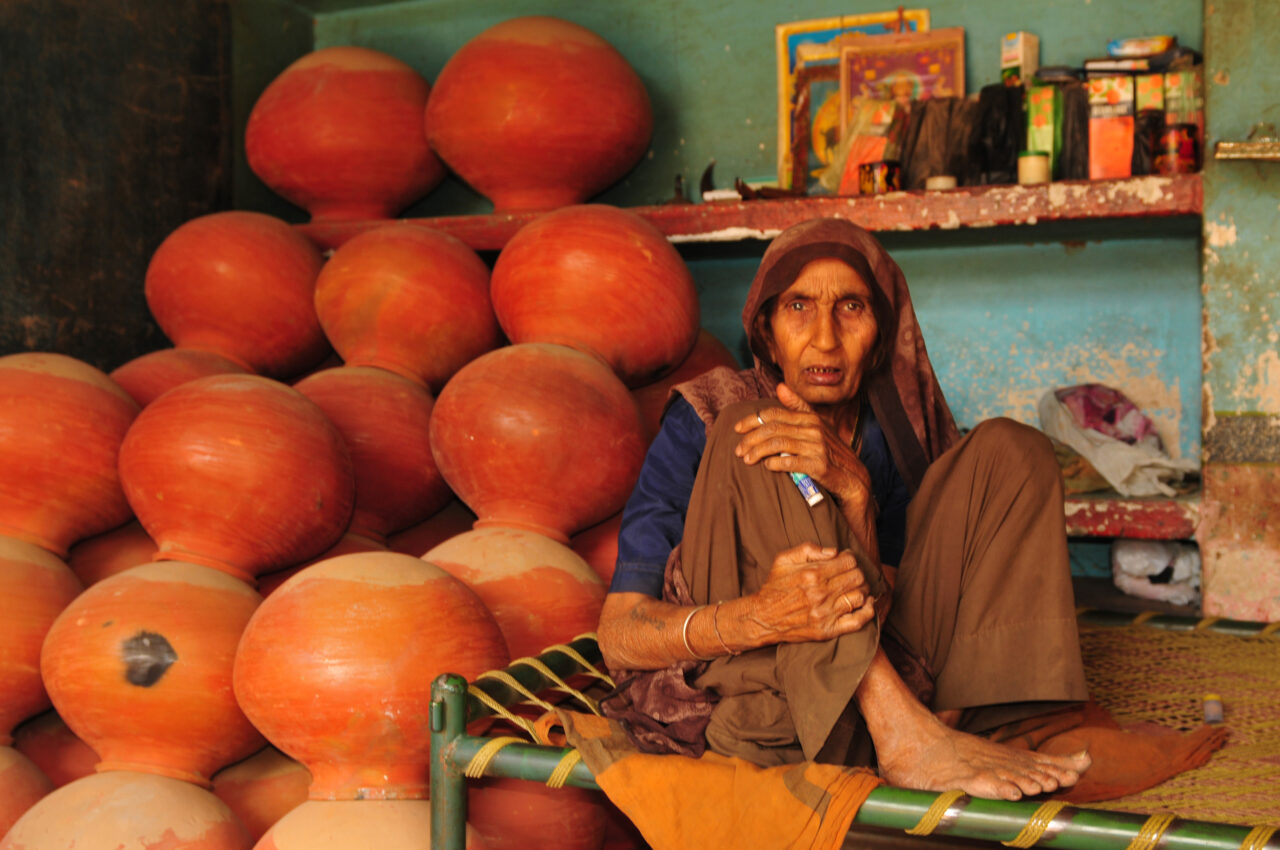
Gujarat: Alte indische Verkäuferin in Ambaji | Gujarat: Old indian woman selling terracota mugs in Gujarat: 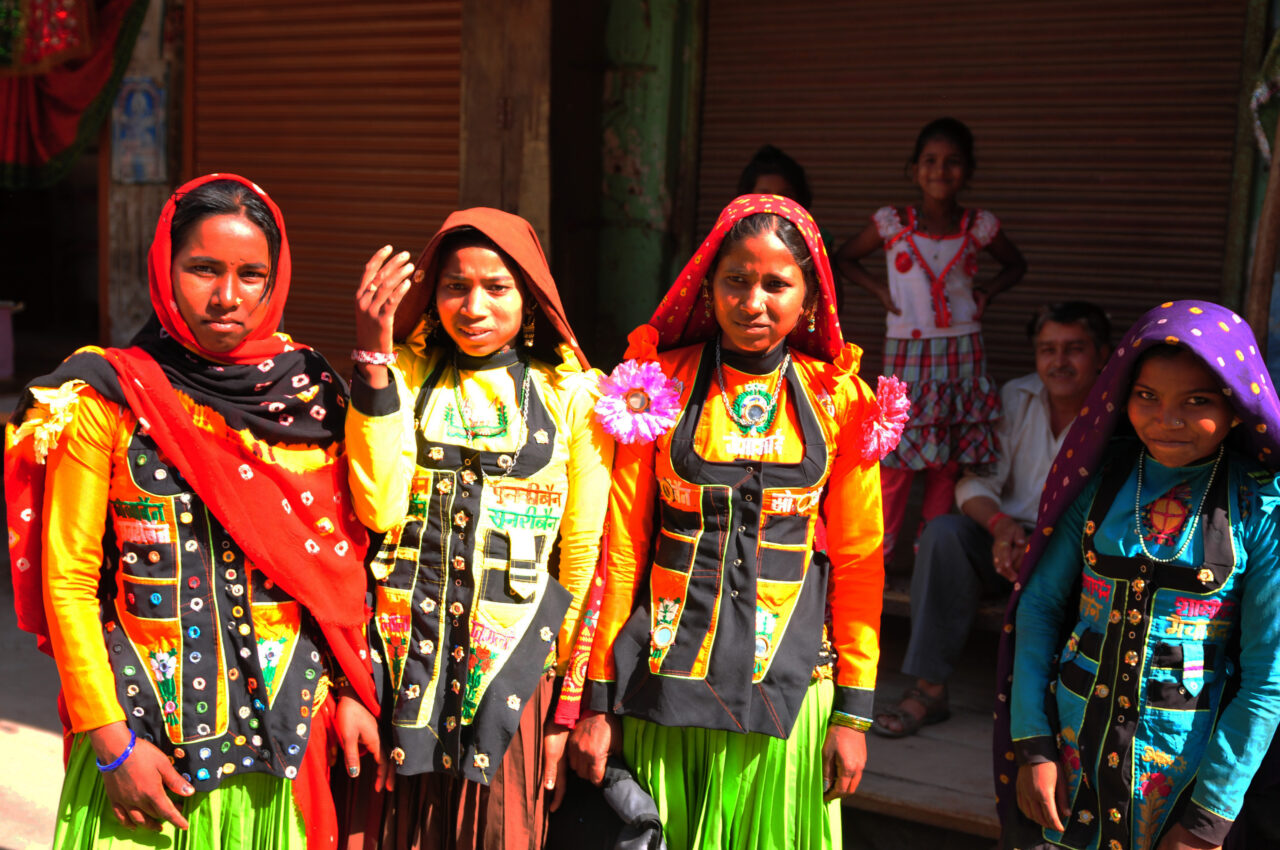
Gujarat ist ein Textil- und Mode-Paradies. Die Frauen hier tragen die schönsten Kostüme und feinsten Stoffe | Gujarati women and girls are wearing colourfull dresses, costumes and produce wonderfull textiles 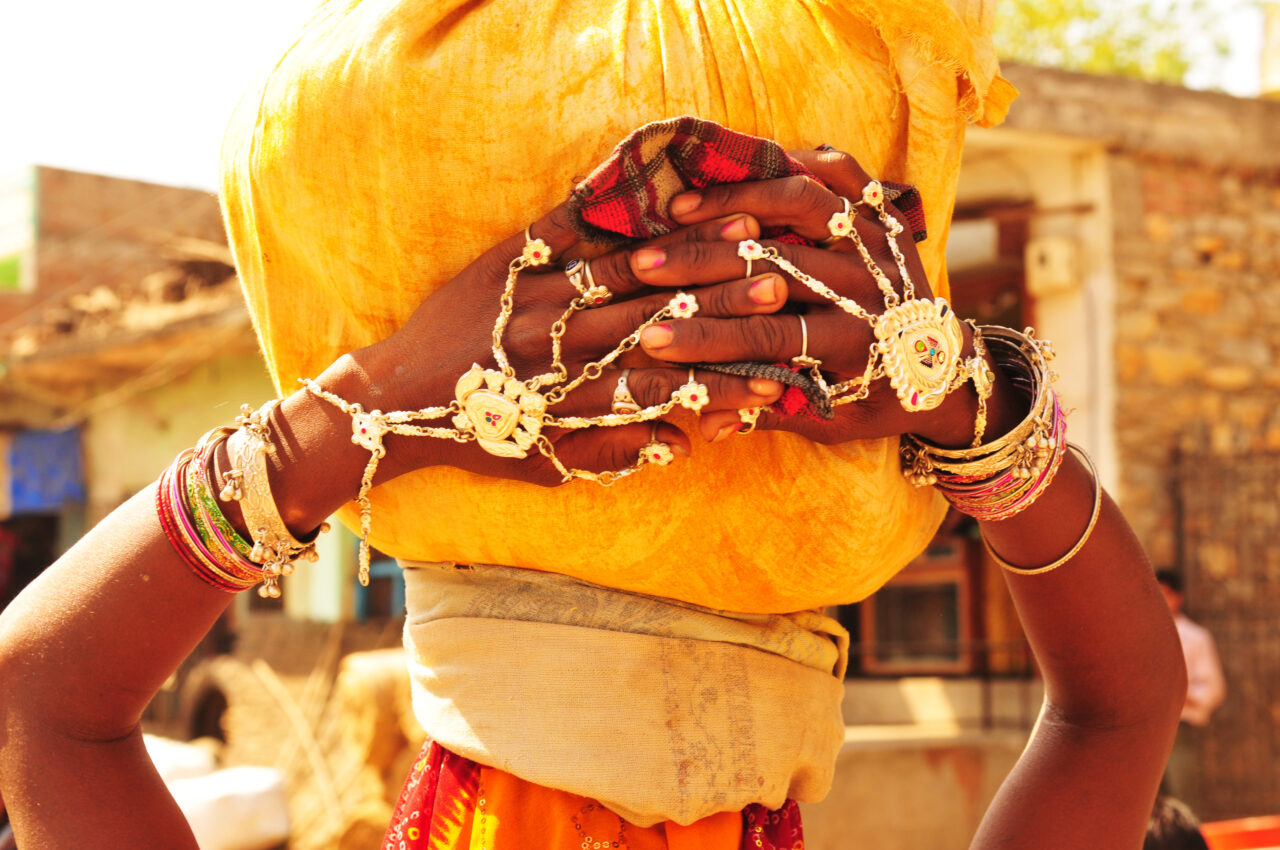
Poshina/Gujarat: Indische Frau mit tollem Silberhandschmuck trägt Korb auf dem Kopf | Indian woman with nice silver hand braclets walking throug the streets of Poshina 
Sklavenarbeit: KohlarbeiterInnen schuften bei grosser Hitze, viel Staube und Dreck,der die Gesundheit beinträchtigt, für einen Billiglohn, wobei die Frauen nur 60% des Gehaltes eines Mannes erhalten, Ahmedabad; Gujarat, Indien | Female women working hard and receiving around 60% oft he Mens salary. 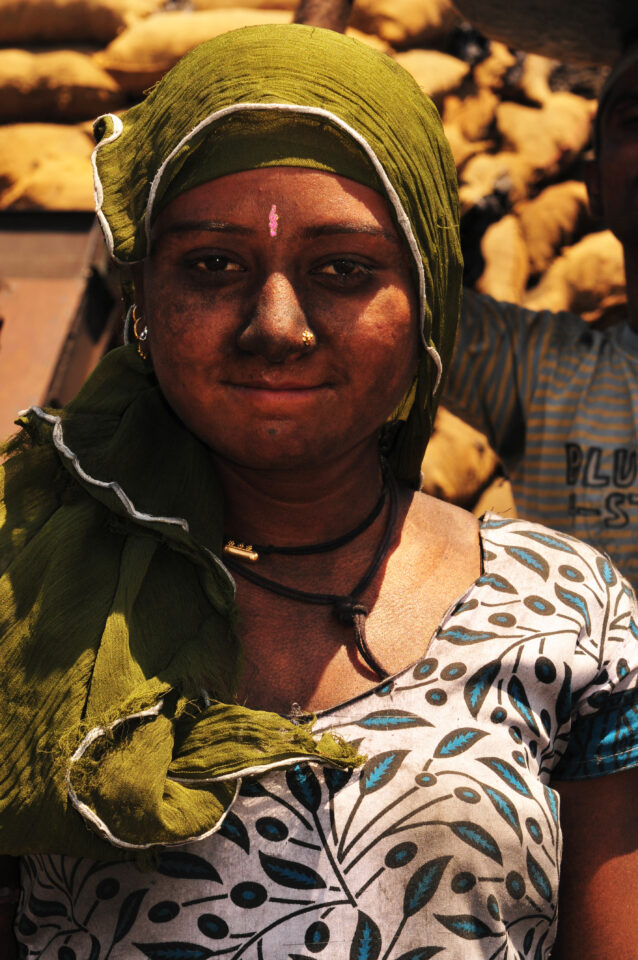
Sklavenarbeit: KohlarbeiterInnen schuften bei grosser Hitze, viel Staube und Dreck,der die Gesundheit beinträchtigt, für einen Billiglohn, wobei die Frauen nur 60% des Gehaltes eines Mannes erhalten, Ahmedabad; Gujarat, Indien | Female women working hard and receiving around 60% oft he Mens salary. 
Junge und ältere indische Frauen vor Haus sitzend; Poshina; Gujarat; Indien | Young and older Indian women sitting in front of the house; Poshina; Gujarat; India 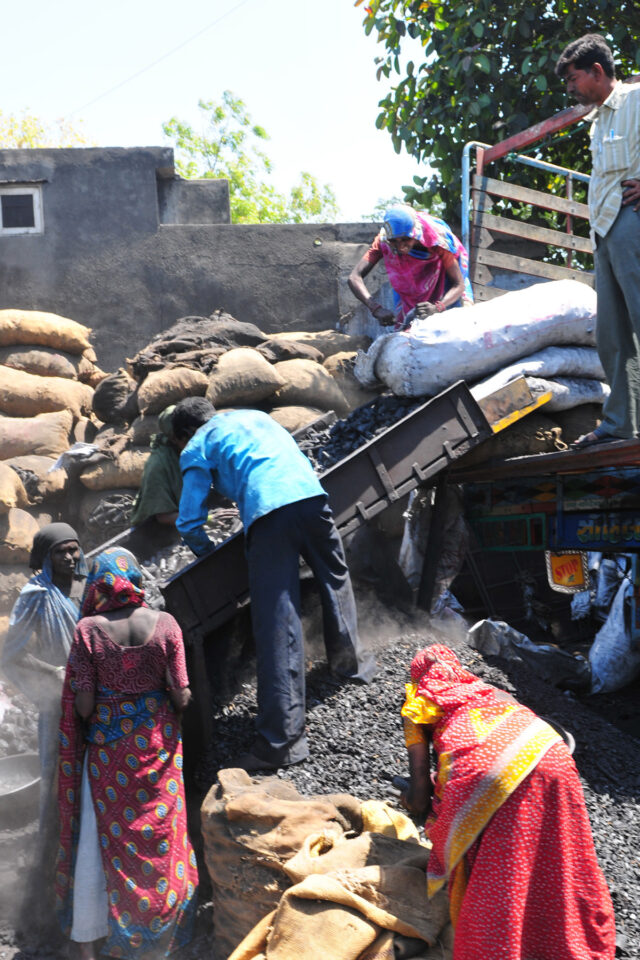
Sklavenarbeit: KohlarbeiterInnen schuften bei grosser Hitze, viel Staube und Dreck,der die Gesundheit beinträchtigt, für einen Billiglohn, wobei die Frauen nur 60% des Gehaltes eines Mannes erhalten, Ahmedabad; Gujarat, Indien | Female women working hard and receiving around 60% oft he Mens salary 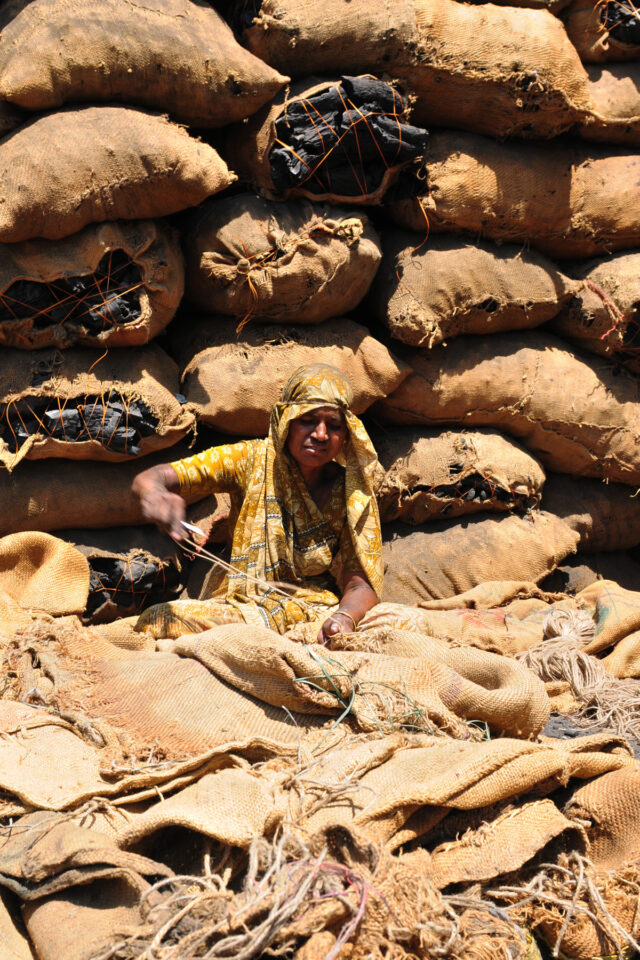
Sklavenarbeit: KohlarbeiterInnen schuften bei grosser Hitze, viel Staube und Dreck,der die Gesundheit beinträchtigt, für einen Billiglohn, wobei die Frauen nur 60% des Gehaltes eines Mannes erhalten, Ahmedabad; Gujarat, Indien | Female women working hard and receiving around 60% oft he Mens salary 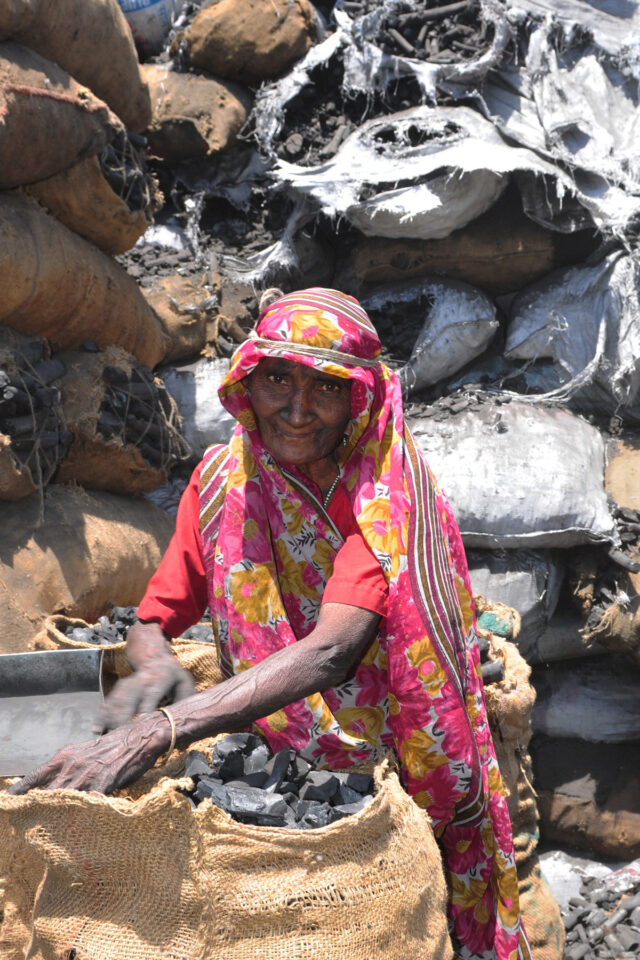
Sklavenarbeit: KohlarbeiterInnen schuften bei grosser Hitze, viel Staube und Dreck,der die Gesundheit beinträchtigt, für einen Billiglohn, wobei die Frauen nur 60% des Gehaltes eines Mannes erhalten, Ahmedabad; Gujarat, Indien | Female women working hard and receiving around 60% oft he Mens salary. 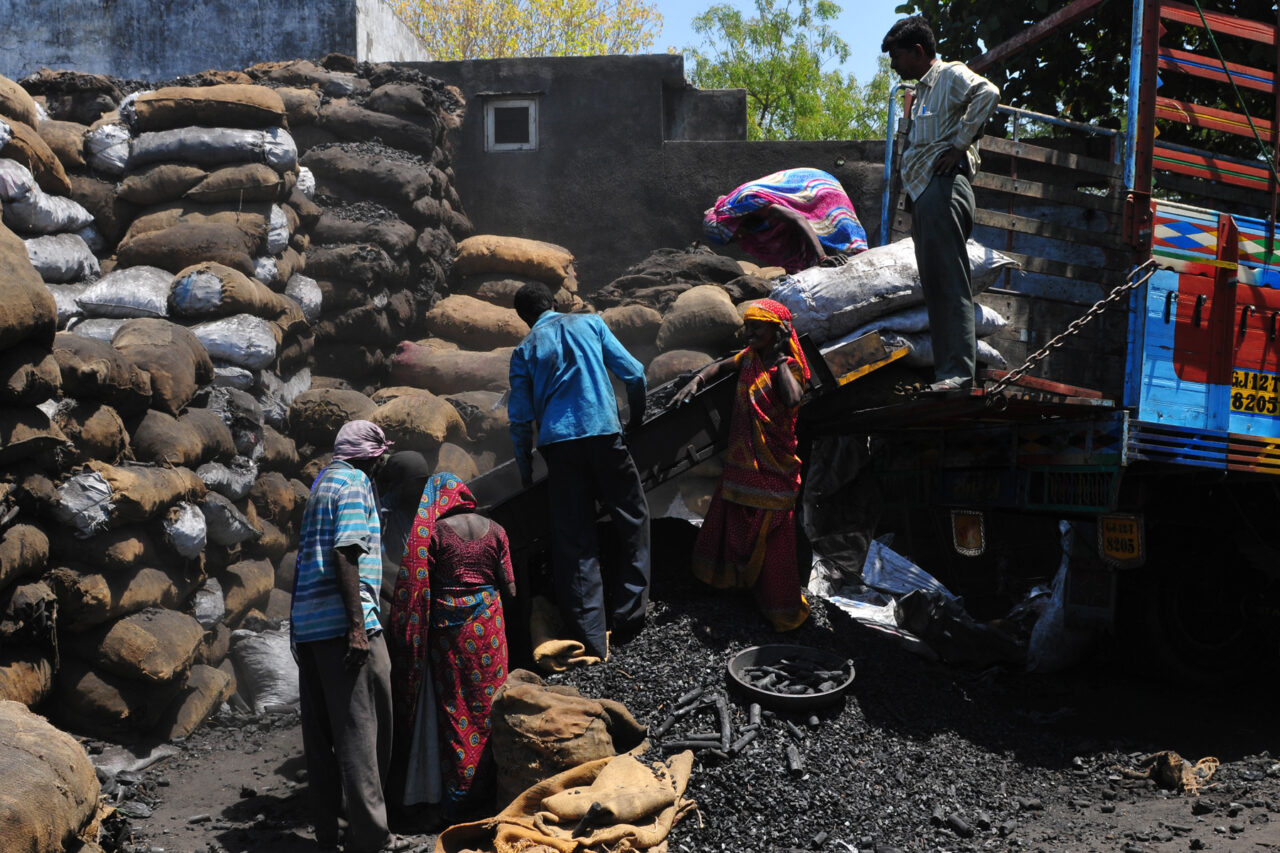
Sklavenarbeit: KohlarbeiterInnen schuften bei grosser Hitze, viel Staube und Dreck,der die Gesundheit beinträchtigt, für einen Billiglohn, wobei die Frauen nur 60% des Gehaltes eines Mannes erhalten, Ahmedabad; Gujarat, Indien | Female women working hard and receiving around 60% oft he Mens salary. 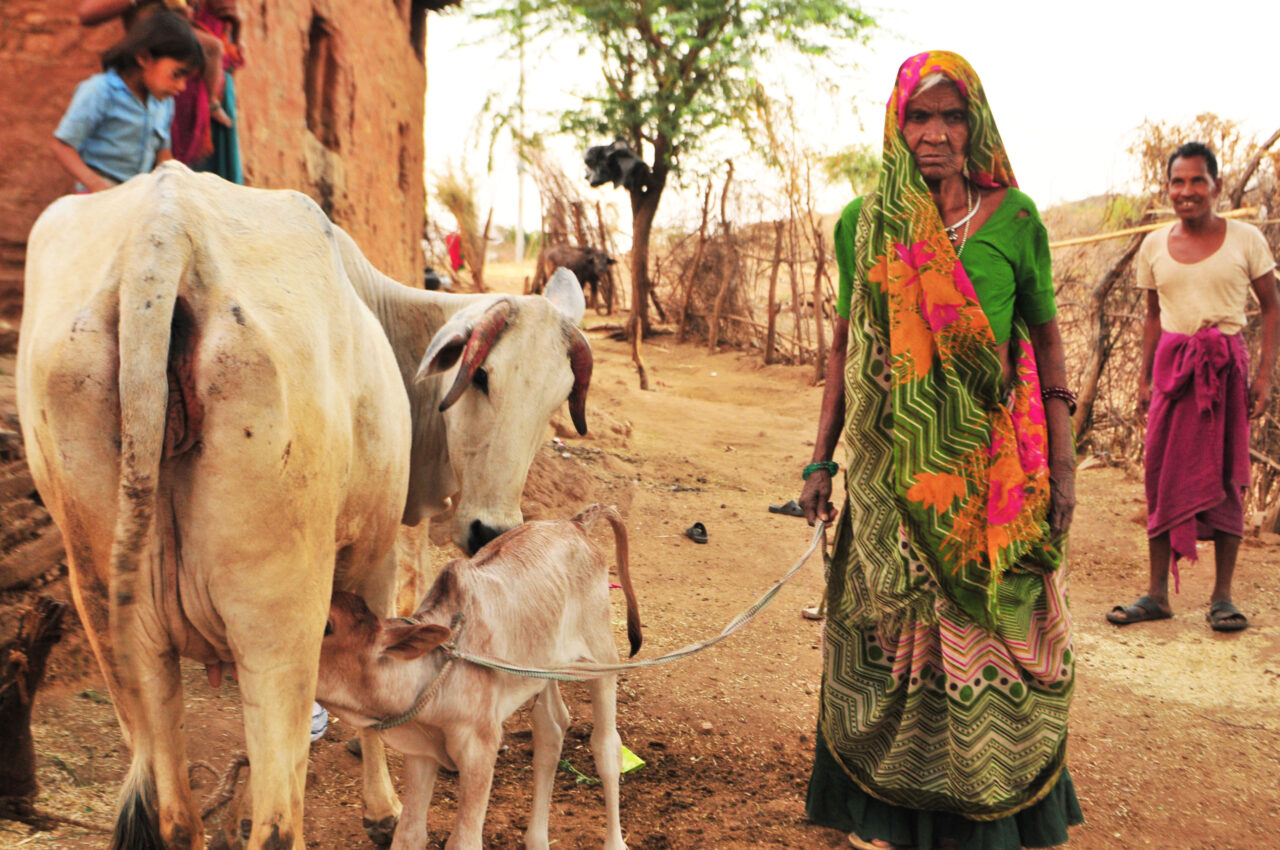
Ältere Vieh-Bäuerin; Kuh; Kald; säugen; Frau; Person; Bauerndorf; Poshina; Gujarat; Indien | Older indian female farmer; cow; village; Poshina; Gujarat; India 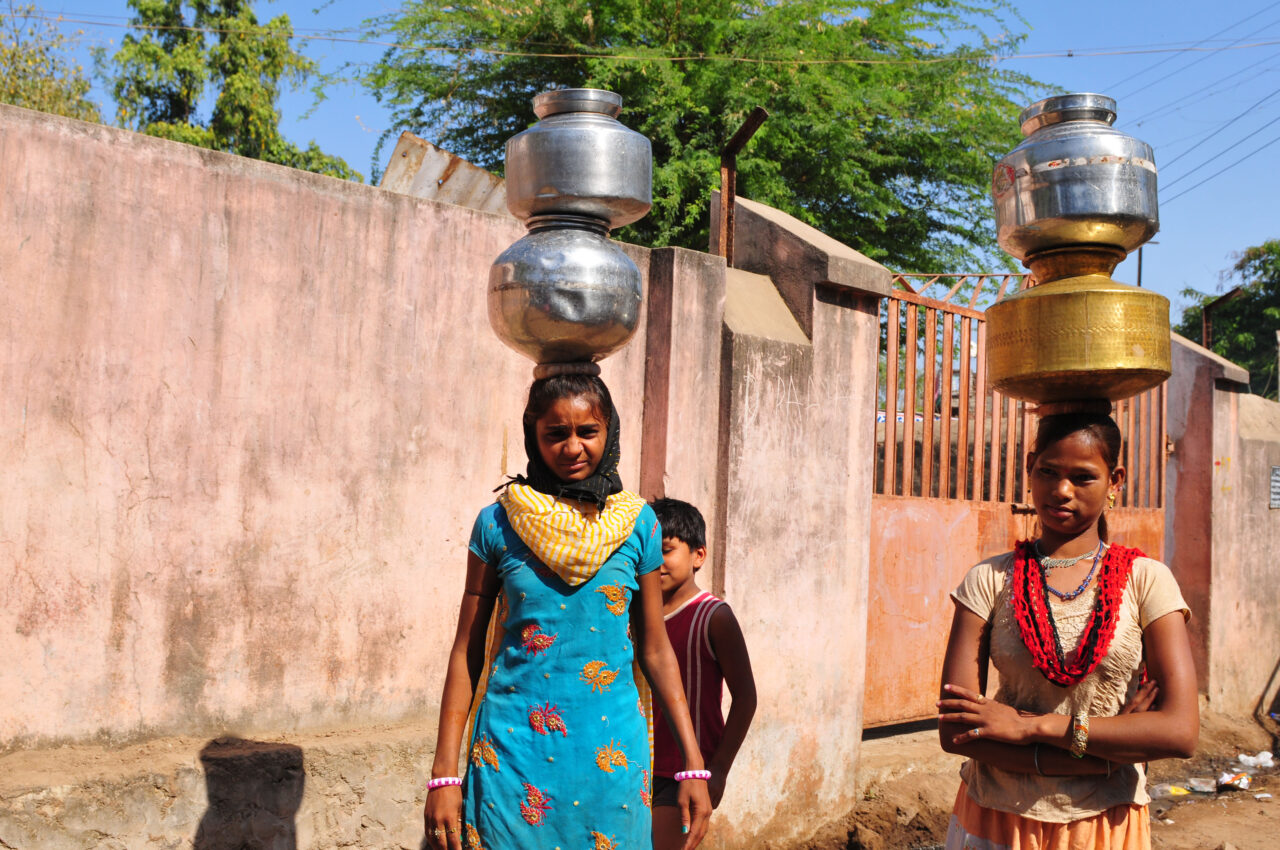
Zwei indische Gujarati-Mädchen mit Wassertöpfen auf ihren Köpfen | Two water packed gutarati girls in Patan 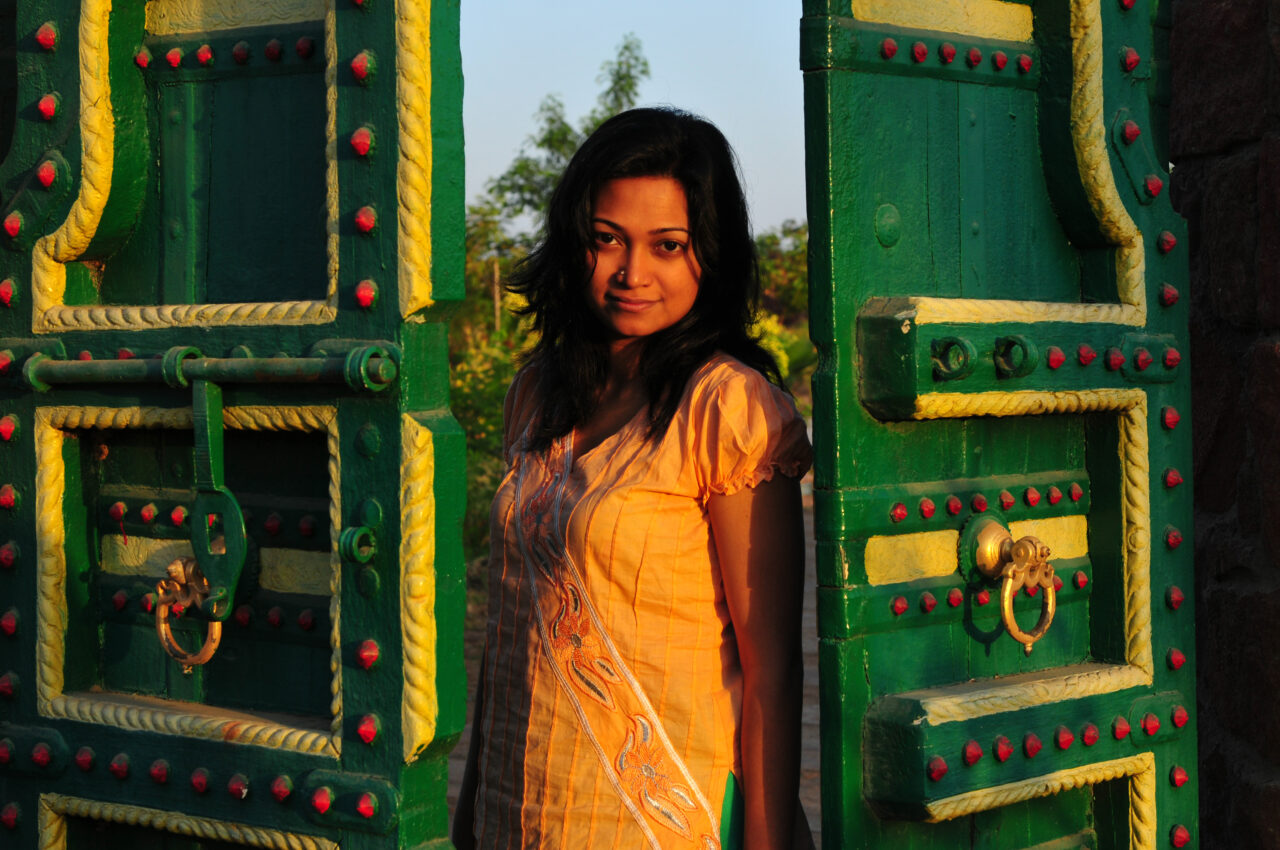
Indische Frau posiert an einer antiken Tür im Royal Safari Campin der Region Little Rann of Kutch | Woman posing at the door in teh Royal Safari Camp in the Little Rann of Kutch
